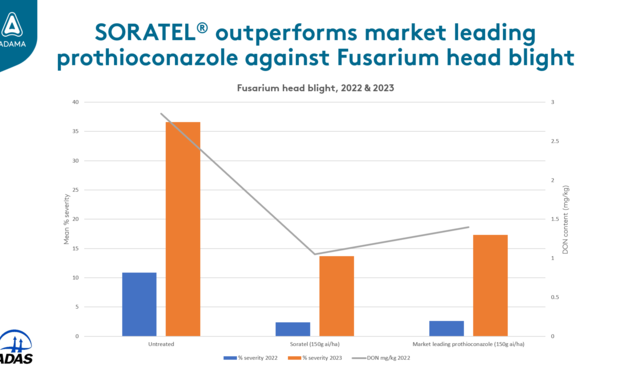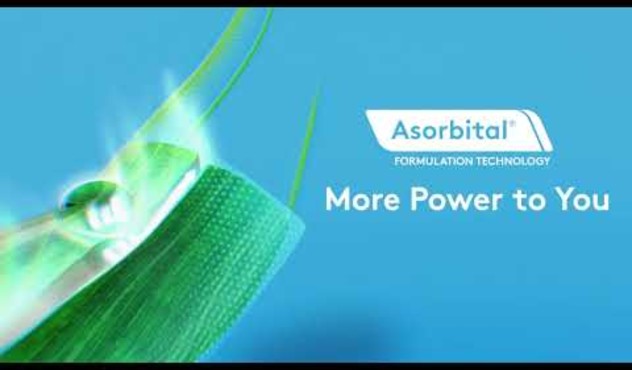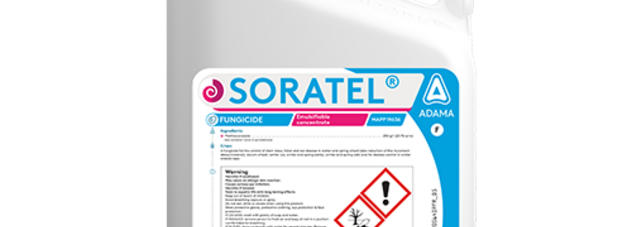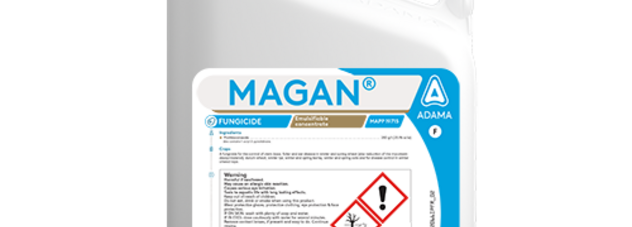
Asorbital Technology
AsorbitalTM fungicides also boast improved levels of rainfastness, so crops remain protected for longer.
Powering up the performance of prothioconazole at T3
Prothioconazole is widely used against a range of cereal and oilseed rape diseases, but not all brands of this generic active ingredient are created equally: compared to standard formulations, ADAMA’s unique AsorbitalTM formulation technology enables growers to power-up their fungicide programmes by switching to a product with enhanced activity against a range of wheat, barley, oat, rye and oilseed rape diseases.
Both of ADAMA’s straight prothioconazole products – SORATEL (250 g/L prothioconazole) and MAGAN (250 g/L prothioconazole) – are the ideal choice at the T3 timing as they offer improved control of fusarium ear blight and better control of septoria, rusts and mildew compared to the current market-leading prothioconazole brand.
Independently proven benefits
Independent laboratory trials have shown that the uptake of ADAMA’s AsorbitalTM formulation is quicker and more effective against septoria compared to the market leading prothioconazole product.
In the trial, a standardised amount of the test products was applied to the basal part of wheat leaves, with the apical part of the leaves left untreated. The apical part was then removed, and the basal part washed to remove any remaining active ingredient on the leaf surface. Both parts were then inoculated with septoria and incubated under saturated, humid conditions. Septoria lesion lengths were then assessed at 21 and 28 days post inoculation, with the results reflecting the quantity of active ingredient present in each part of the leaf: less disease in the basal part indicated better penetration into the leaf; less disease in the apical part indicated better migration from the basal part to the apical part.
Septoria lesion lengths were assessed at 21 and 28 days post inoculation, with the results (illustrated in the graphs below) reflecting the quantity of active ingredient present in each part of the leaf:
- Less disease in the basal part indicated better penetration into the leaf
- Less disease in the apical part indicated better migration within the leaf

ADAMA’s AsorbitalTM formulation is taken up more quickly than the market leading prothioconazole product, resulting in better protection against septoria.
dpi = days post inoculation
hAA = hours after application
Source: Independent laboratory trials, BIOtransfer, France 2021
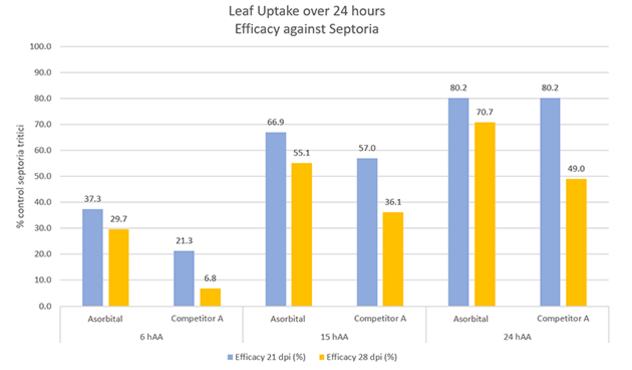
The ADAMA formulation also offers better protection against septoria in non-treated leaf areas thanks to its superior movement within the leaf.
dpi = days post inoculation
DAA = days after application
Source: Independent laboratory trials conducted by BIOtransfer, France 2021
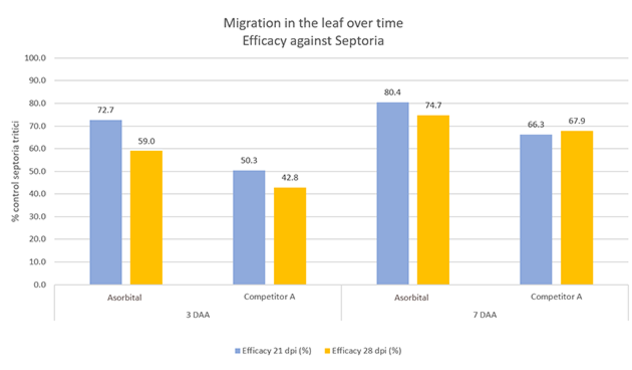
Longer lasting protection
Laboratory trials have also shown that the AsorbitalTM formulation offers better rainfastness than the market leading prothioconazole product.
In this trial, wheat plants were treated at the 2-3 leaf stage and subjected to 40mm of simulated rainfall at 1 or 3 hours after treatment. The plants were inoculated with septoria 24 hours later, and disease levels assessed after 21 days. In both cases, the AsorbitalTM formulation achieved better control of septoria compared to the market leading product.
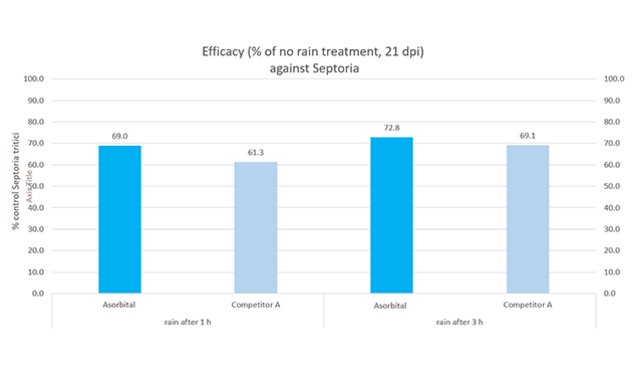
Enhanced disease control
Extensive trials in the UK and Europe have shown that the improved uptake and migration of ADAMA’s AsorbitalTM formulation results in significantly better control of all target diseases compared to other prothioconazole products.
Under UK conditions, ADAMA’s AsorbitalTM formulation provides improved control of septoria, yellow rust and fusarium in wheat, with a 13% uplift in control of fusarium compared to the market leading prothioconazole product.
